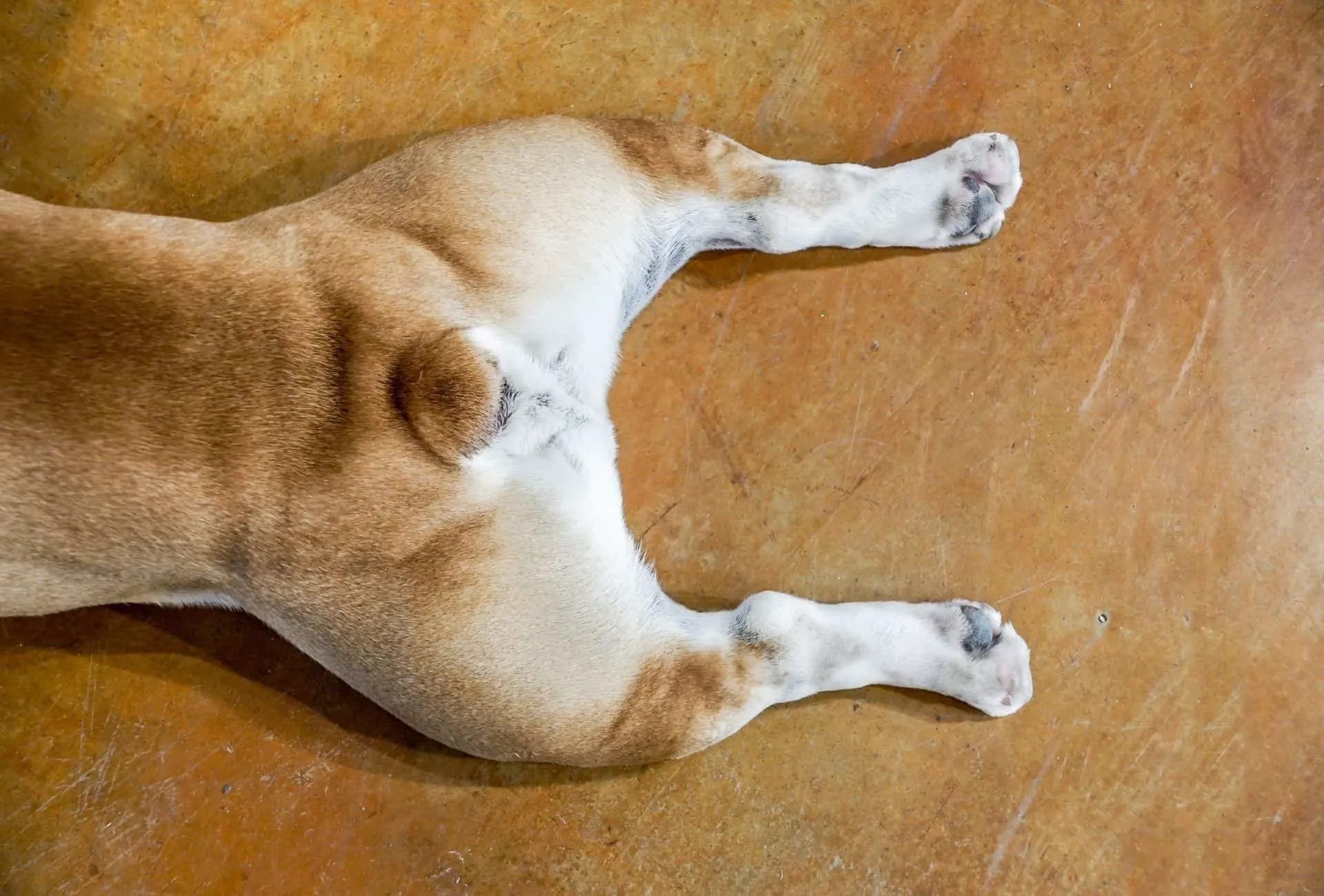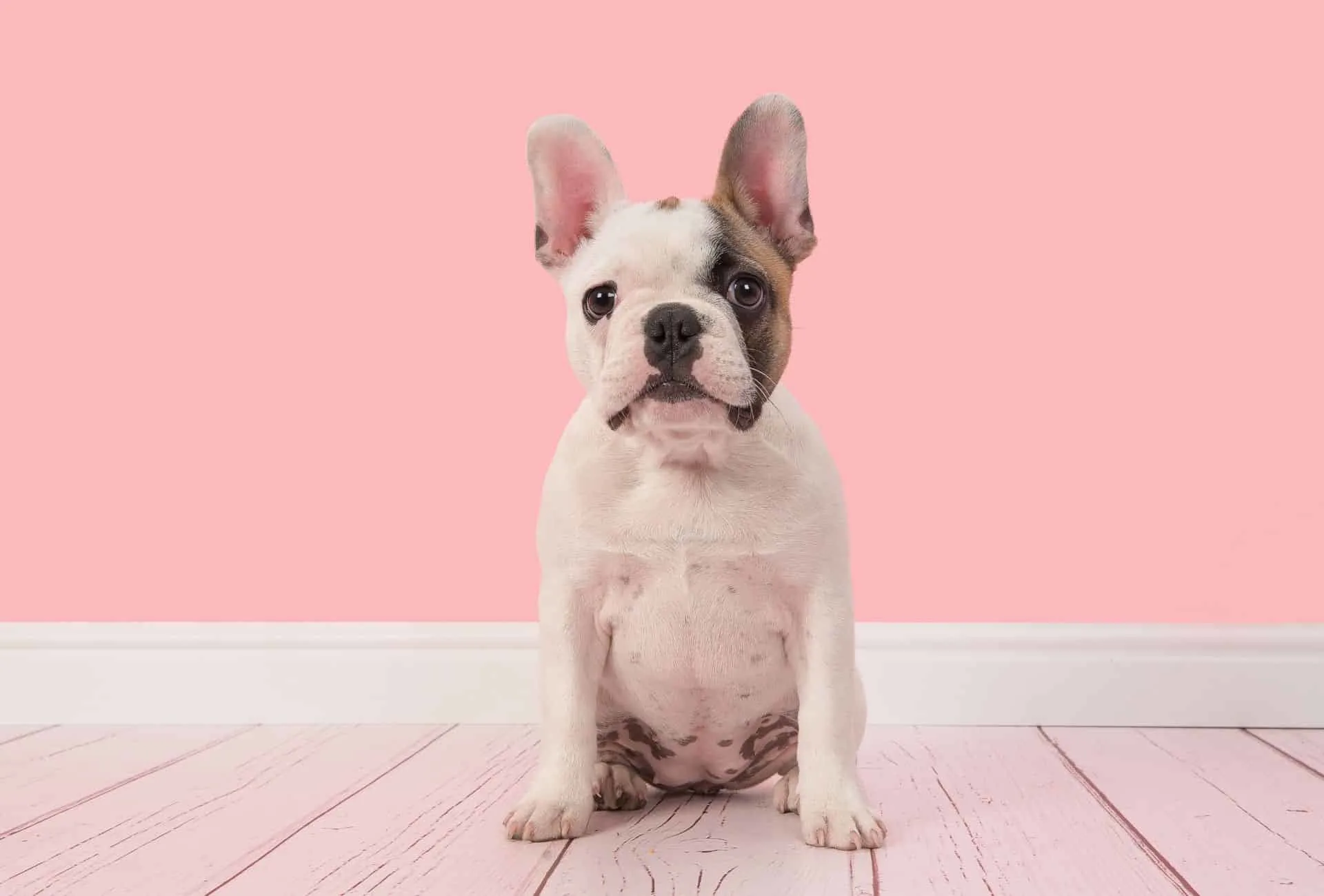If you notice your furry friend has become congested recently, you may wonder what is going on.
Snoring, grunting, sneezing, and snorting are all noises that are cause for concern if heard frequently enough.
Reasons a dog sounds congested will vary and are largely dependent on age, breed and whether or not a dog has any underlying medical issues.
Most of the time, the cause is benign and the issue can be easily dealt with.
For a small number of pooches, there may be something more serious going on.
What Does It Mean When Your Dog Sounds Congested?
Congestion in a dog can indicate an anatomical fault, obesity, allergies, foreign objects, respiratory infections, or even tumors. Temporary issues include poor air quality or an odd sleeping position.
Some breeds are no stranger to noisy breathing.
This is especially true for snub-nosed (brachycephalic) breeds such as the Pug, (French) Bulldog, Boston Terrier, Cavalier King Charles Spaniel, Shih Tzu, Boxer, and Mastiff.
For some, their anatomy means that they sound congested 24/7.
For others, however, sounding congested may be new territory.
There is a wide range of potential causes for dog congestion and snorting. These include:
- Anatomy. Noisy breathing is seen as “normal” for some of our less fortunate canine friends.
- Obesity. Those carrying extra pounds are putting additional pressure on their heart and lungs which can affect their breathing quality.
- Age. As a dog gets older, the cartilage in their airways weakens and they can begin to breathe more loudly than before.
- Allergies. Similar to hayfever in humans, some dogs experience Allergic Rhinitis. This can cause sneezing as well as nasal discharge and congested breathing.
- A foreign body in the nasal passage. If a dog sniffs up a grass seed or awn this is likely to give them trouble when it comes to their breathing. Sometimes, an abscess develops and there is significant swelling. Signs typically start abruptly and can be severe.
- Respiratory infections. Bacterial, parasitic, fungal, or viral can all create congested breathing. This is due to the inflammation as well as the production of excess snot and fluid.
- Sedation. If your dog has had an anesthetic or sedation you may well notice their breathing sounds heavier for the next day or so. This is a combination of their relaxed muscles narrowing their airway and the fact that they will be very groggy.
- Tumors. Anything that obstructs the natural airflow needs to be considered. Benign tumors (like polyps) and cancerous tumors would both need to be considered.
- Air quality. If the air around your dog is not well ventilated and is dusty or smoky, this can affect the way that they breathe.
- Laryngeal Paralysis. Dogs who develop laryngeal paralysis can have noisy breathing and a soft cough. It tends to be senior dogs that are affected.
- Sleeping position. Sometimes, your dog may be lying awkwardly, causing slight airway obstruction. This can mean they start to sound blocked up and congested. Once they return to a more normal position and/or wake up, normal breathing should resume.
Why Does My Dog Sound Congested When Sleeping?
If your dog sounds congested when sleeping or snores, this may be due to a genetic predisposition for breeds with short snouts, respiratory infection, or just an odd sleeping position if it’s only temporary.
My Rottweiler does snore sometimes when she’s fast asleep but it never happens during the day, that’s when you’re looking at serious issues more often.

Oftentimes, owners notice breathing changes when their dog is asleep as they have the opportunity to watch them closely.
It may be that these changes are always present but are harder to spot when a dog is moving about and active.
Breathing that sounds more congested when a dog is asleep may be associated with the position in which your dog is sleeping, especially if they are older and/or over-weight.
It’s also true that fluid can settle during sleep.
So, those with certain lung and heart diseases tend to cough more and have more trouble breathing when lying down.
Please refer to the reasons listed above if you’re unsure about all the possible causes.
Why Is My Dog Snoring all of a Sudden?
An abrupt change in breathing habits would usually be accompanied by other signs. You may notice your dog is also breathing faster and is less able to exercise.
If your dog normally has quiet breathing, a sudden change needs to be explored.
A congenital issue such as BUAS is much less likely in this case.
When a dog’s breathing changes, your vet should be one of the first to know.
The vet will check for signs of respiratory infections and airway blockages.
Your vet will take factors such as your dog’s breed, age and weight into account.
They will also consider the season, to determine if seasonal allergies are a possibility.
Dog Breathing Sounds Like Snoring
There are several causes of noisy breathing that sounds like a snore.
If this is a new thing for your dog, an airway exam should be performed by a vet.
They will listen closely to your dog’s heart and lungs and may order some tests such as a chest x-ray.
Why Is My Dog Snoring While Awake?
Snub-nosed breeds often sound like they’re snoring even when awake. This is because they suffer from a condition called Brachycephalic Upper Airway Syndrome.

Grunting and snorting can be “the norm” for some dog breeds who have short muzzles such as Pugs, Bulldogs, and Shih Tzus.
Some are more affected than others and it is important you discuss with your vet if your dog requires any intervention.
Dog Gurgling Sound When Breathing
Gurgling when breathing may mean that there is fluid present somewhere in the airway, which could point toward serious lung or heart disease.
A gurgle is a specific sound that should never be ignored.
If you think your dog gurgles when they breathe, have them assessed right away.
What are the Signs of Respiratory Distress in a Dog?
A dog in respiratory distress may hide, pace around, or stand with their arms wide apart and neck extended. With limited oxygen, the breathing will generally be fast, shallow, or noisy and gums may be grey or blue instead of a healthy pink.
Every owner should make themselves familiar with the signs of respiratory distress.
While some assume signs would be obvious, this is not always the case.
It can be useful to measure your dog’s breathing rate. When resting or asleep, anything higher than 30 breaths a minute is a red flag.
An exception to this is a healthy pup who may breathe quickly for a short time while dreaming.
Dog Congestion Home Remedies
It’s very important to emphasize the need for a proper diagnosis when a dog’s breathing is affected.
A trip to the vet should always be the first port of call.
Once we know what we are dealing with and the correct prescription medicine has been issued, we can consider how we can help our dogs at home:
- Let your dog in the bathroom whenever a family member has a hot bath or shower. This can help clear their airways and soften any mucus buildup.
- Encourage your dog to move about, as long as they are up for it. Lying still for too long can lead to mucus and fluid pooling.
- Anti-histamines and similar over-the-counter medicines may be appropriate for some patients, especially those with allergies. However, this should always be discussed with a vet first.
- Clear away any nasal discharge with a warm, wet cotton towel or grooming wipes.
- Remember, when your dog is bunged up they won’t have a great sense of smell. This can put them off their food which can affect their energy. It can help to offer warm and strong-smelling food such as sardines and moist chicken.
- Consider using a humidifier in your home if needed.
- Keep the air well ventilated. Make it easier for your dog by ensuring the air is free of dust, smoke, cooking fumes and air fresheners.
How Do You Clear a Dog’s Nasal Passage?
Thankfully, this tends to be something Mother Nature takes care of for us.
Any liquid in a dog’s nasal passage will either be swallowed or come out via their nostrils.
While some websites may advise using a nasal aspirator, few dogs will tolerate this according to practicing vets (and my own experience).
Rather, using a humidifier and steaming your dog in the bathroom should be enough to loosen up mucus and let the body deal with it naturally.
When liquid is dripping out of the nostrils, you can clean it away with cotton wool.
How Do You Get Fluid Out of a Dog’s Lungs?
If your dog has fluid in or around their lungs this is a true medical emergency.
This is not something that can be treated at home and these dogs need immediate vet care.
Fluid build-up may need to be drained with a needle or using medicine called diuretics.
Loud breathing in a dog is a symptom that merits our attention.
It will likely bother your dog, affect their sleep and make it harder for them to exercise.
It can also be incredibly annoying and disturbing for an owner to listen to 24/7.
There are a range of potential causes for congested and noisy breathing, meaning a vet visit is a necessity.
Your dog will be examined thoroughly and may require – after natural remedies are ruled – medication and other interventions.
Disclaimer: This blog post does not substitute veterinary attention and does not intend to do so. I am not a veterinarian or pet nutritionist. If your dog shows any sign of illness, call your vet.
abe
Thursday 4th of November 2021
Thanks, this was very helpful to me, and my family.